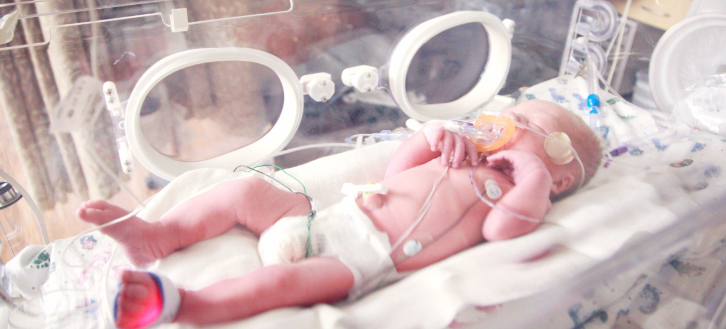Photo Credit: Nadezhda Kurbatova
Jurors will never hear every fact in a medical malpractice case…and that is frankly often to the doctor’s advantage.
Litigation can be less about what is said than about what can be prevented from being said. Jurors will never hear every fact in a medical malpractice case…and that is frankly often to the doctor’s advantage.
Some important relationships cannot exist without the ability of the participants to speak openly. A patient cannot reveal intimate medical details to their doctor, a penitent person cannot confess to a clergy member, and spouses cannot be candid within their marriage if there is an overarching fear that what is said can be used in a later legal action…and, of course, an attorney cannot advise their client if that client is afraid to discuss their case because that lawyer could be used as a witness against them. Therefore, we deny some fact-finding in trials because protecting the relationships that those facts stem from is considered more societally important, including the conversations between a lawyer and their client about the client’s case.
This is not the wider ethical duty of confidentiality. That binds the lawyer to not reveal client secrets in any setting as a matter of professional conduct. Privilege is about preventing compelled revelation during a case.
It is also different from attorney work-product, which allows the lawyer to shield material that they prepared for the litigation. This prevents a party from poaching their opponent’s thoughts and strategies. Work product may refer to privileged material, but the work product shield resides with the attorney.
The lawyer or the client may assert the attorney-client privilege, but the client holds the privilege, which means only they can waive it.
This privilege is, therefore, the most fundamental barrier against the jury knowing everything about your case.
Other Cases
The purpose of a trial in a medical malpractice action is to examine whether the care in that case met the standard of good and accepted medical treatment.
Bringing in evidence of prior cases is therefore very restricted because of the risk that they will be used to just generally indicate to the jury, “He’s a bad doctor,” when what has to be proven is that the defendant’s work was substandard in the particular case. This is referred to as being “more prejudicial than probative.”
There will, therefore, have to be substantial similarity, if not actual identity, of the medical issues. For example, if the defendant doctor is alleged to have cut the common bile duct that she was successfully sued for not following up on a decreasing hematocrit in a post-operative patient who was bleeding internally will definitely not come in, but a case in which she cut the ureter may also be disallowed as evidence because even though both cases are about cutting a tubular structure and failing to correct it the areas of interest in the body are very different.
The Collateral Source Rule
“Collateral” refers to a matter outside a transaction. In civil litigation, a collateral source refers to the coverage of costs by a third party. In medical malpractice cases, this will usually be an insurer.
The Collateral Source Rule is a rule of evidence that prevents either side from introducing the fact that the other has access to such sources of compensation.
As a baseline matter, we don’t want jurors deciding the case on anything but whether the facts as presented prove liability and, if so, what damages can be assessed. That one side has deep pockets or that the other has received payment is irrelevant to this analysis. Of course, does everyone on the jury know that doctors carry malpractice insurance that will address an award in the case and that most plaintiffs will have some health insurance coverage that paid towards the care being sued about? Sure. But what the Collateral Source Rule protects against is making the specific coverage a piece of evidence.
There is also a strong public policy issue: we want people to be insured because insurance spreads risk over a population pool and deflects costs that the public would otherwise bear. Someone who causes harm should, therefore, not get to benefit from the victim having coverage, and responsible conduct in maintaining insurance should not be held against someone.
Courts will enforce the Collateral Source Rule very strictly, so a plaintiff’s lawyer telling the jury at Summation that “It’s not coming out of the doctor’s pocket. Her insurance will pay.” or a defendant doctor angrily testifying that “InsCo already paid him for this!” is going to get their case benchslapped into a mistrial.
Offers
The irony about litigation is that courts want to avoid it. Pretrial settlements are highly favored, and offers to settle before verdict are considered a good outcome in a trial. Courts want the parties to act reasonably rather than pointlessly banging on each other to the bitter end, soaking up docket space and the time of the judge and the jurors.
Beyond the policy issue, though, there is an evidentiary one—an offer to compromise is simply not probative of culpability by the defendant or baselessness of the plaintiff’s claim. Decisions of this type are usually due to an array of factors that accrue as the trial proceeds and that a party may determine are not beneficial to its case, including rulings by the judge, how the jury appears to be reacting, and how witnesses have performed on the stand. A party with a meritorious case or defense may still decide that settlement is a wise option.
This is different from the situation that you may have seen played out in courtroom dramas, with the defense attorney asking a witness, “Didn’t the DA offer you 5 years for manslaughter if you testified against my client?” That is allowed because the offer is being cited to impeach the witness by showing that they have a motive to lie, not as proof of their guilt. Therefore, it differs from using an offer as evidence in a medical malpractice case, where it would go to the plaintiff’s faith in their claim or the doctor’s belief in their non-liability.
Therefore, either side cannot present the fact that the other side proffered an offer, and Mistrialville will be the next destination for the side that tries.
Licensing & Credentialing
Keeping these issues out would be less a hard and fast rule than a case-by-case matter that would be worked out pre-trial by Motions.
As we saw in other malpractice cases against the defendant doctor, the issue was whether there was congruence between the certification problem and the alleged negligence.
Merely not having a license or a Board credential as a ministerial matter, such as because a fee was not paid, would not come in, and even if academic failure or misconduct were involved, the plaintiff would have to show that that overlapped with the current case. This could be because the credential was lost or had never been attained for reasons that were substantially the same as those now being alleged or because the defendant doctor misled the plaintiff by claiming a qualification to carry out that care they did not have.
The plaintiff’s attorney may hammer the defendant doctor about an unrelated credentialing lapse or training failure at their deposition, but that is to show the defense that the doctor does not do well under pressure and so to encourage settlement, not because the lawyer expects to bring it in as evidence later.
This is, again, an evidentiary matter about what is probative and what is not. It is separate from an allegation of negligence per se, under which liability attaches for a failure to comply with a statute intended to protect people like the plaintiff, which licensing does as far as patients. This would be pleaded as a separate allegation in the Complaint.
In summary, several important matters will be withheld from the jury, and that is generally to the defendant’s doctor’s advantage.





















Create Post
Twitter/X Preview
Logout